Feeling Fortunate for Family and Fortitude: Jason Lucci
Author: Jeff Tiessen
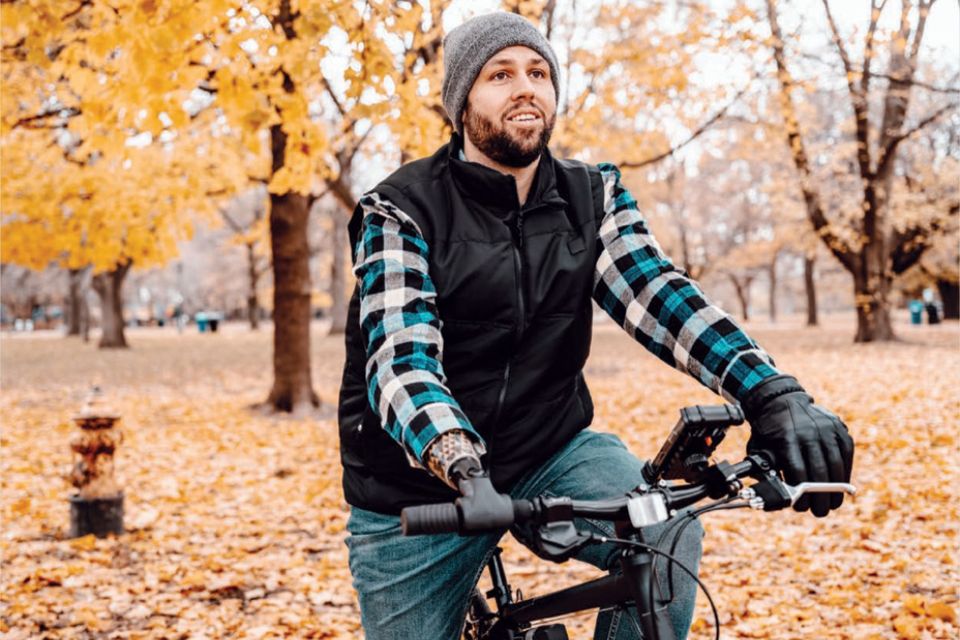
Jason Lucci feels very fortunate. Not because the pasta-making machine that took his hand didn’t take more. And not because his amputation veered his life in a better direction. Family, fortitude and funding are what he is grateful for as part of his recovery.
Maybe something else that he feels fortunate about is the opportunity he has been given to help others – less fortunate amputees – on their journey. After finding his own help on several U.S.-based Facebook groups, Lucci moved toward offering peer support quite quickly. He teamed up with a fledgling group in Toronto to create what is now the highly-respected Amputee Coalition of Toronto. And so was born his passion to help other amputees… and simultaneously, himself too.
Lucci lost his right hand in a work accident in 2017. There’s something about that that he feels fortunate for as well. He was working for a pasta-producing company as a delivery driver when he was promoted to production in response to a staffing shortage. With little training Lucci found himself working on a faulty penne-making machine, actually making for some close calls. Instructed to move to another machine, Lucci never had the chance as the unpredictable one turned on unannounced and caught his hand before he could smack the emergency stop. “I was newly married [six months] and all that I was thinking about was that I didn’t want to make her a widow,” he remembers. “I went into survival mode.”
Here’s the fortunate part as Lucci describes it. “They couldn’t get an IV in me in the ambulance. I was overweight and unhealthy. I arrived to the hospital with my injured hand in a bucket beside me.” Lucci woke up three days later with his hand re-attached. Thought to be a successful surgery, a long recovery was understood, but cut short after only six days when a clot formed in an artery to the hand. “Hindsight is 20-20,” Lucci rationalizes, “but I think I prefer to have what I have, and to be able to do the things I can do with my prosthesis, rather than a hand that was alive but not functional and probably painful. No, it’s not the same but for me it is better to have function.”
Those consolations, of course, weren’t part of Lucci’s thinking at the time of his injury. “My greatest fears as I was laying in the hospital bed were all about how I would take care of myself, how was I going to do anything?… I was right-handed.”
He also worried about how his wife would respond. “I had a lot of guilt about her having to be my caregiver. And how she would have to support me emotionally. And no one was there for her. I was never offered peer support in the hospital – my support came from my wife, my mother and my nurses. That’s all I had. And who did my wife and mother have? I’m so grateful for them. They were by my side from morning ‘til night. When they weren’t there, I was scared and would cry.”
Finally leaving the hospital brought Lucci some normalcy, but it came with a dark side too. His wife had to go back to work, leaving him alone with his fears. “I would call her crying, not wanting to do this anymore, not wanting to live. It was a very stressful time. I needed something to do, some place to go.”
He found that place in the prosthetics clinic at West Park Hospital. It’s where he found others, like him, to talk to. It was helpful. “I would go for a one-hour appointment and be gone all day. I’d leave with a smile on my face because I felt better too. We were all going through similar things. I would go home happy.”
Lucci lost his right hand in a work accident in 2017. There’s something about that that he feels fortunate for as well. He was working for a pasta-producing company as a delivery driver when he was promoted to production in response to a staffing shortage. With little training Lucci found himself working on a faulty penne-making machine, actually making for some close calls. Instructed to move to another machine, Lucci never had the chance as the unpredictable one turned on unannounced and caught his hand before he could smack the emergency stop. “I was newly married [six months] and all that I was thinking about was that I didn’t want to make her a widow,” he remembers. “I went into survival mode.”
Here’s the fortunate part as Lucci describes it. “They couldn’t get an IV in me in the ambulance. I was overweight and unhealthy. I arrived to the hospital with my injured hand in a bucket beside me.” Lucci woke up three days later with his hand re-attached. Thought to be a successful surgery, a long recovery was understood, but cut short after only six days when a clot formed in an artery to the hand. “Hindsight is 20-20,” Lucci rationalizes, “but I think I prefer to have what I have, and to be able to do the things I can do with my prosthesis, rather than a hand that was alive but not functional and probably painful. No, it’s not the same but for me it is better to have function.”
Those consolations, of course, weren’t part of Lucci’s thinking at the time of his injury. “My greatest fears as I was laying in the hospital bed were all about how I would take care of myself, how was I going to do anything?… I was right-handed.”
He also worried about how his wife would respond. “I had a lot of guilt about her having to be my caregiver. And how she would have to support me emotionally. And no one was there for her. I was never offered peer support in the hospital – my support came from my wife, my mother and my nurses. That’s all I had. And who did my wife and mother have? I’m so grateful for them. They were by my side from morning ‘til night. When they weren’t there, I was scared and would cry.”
Finally leaving the hospital brought Lucci some normalcy, but it came with a dark side too. His wife had to go back to work, leaving him alone with his fears. “I would call her crying, not wanting to do this anymore, not wanting to live. It was a very stressful time. I needed something to do, some place to go.”
He found that place in the prosthetics clinic at West Park Hospital. It’s where he found others, like him, to talk to. It was helpful. “I would go for a one-hour appointment and be gone all day. I’d leave with a smile on my face because I felt better too. We were all going through similar things. I would go home happy.”
“I still get looks and stares that I’m not always comfortable with. I’m still learning new things with this hand. It’s challenging and challenges me. I’m still figuring things out. But with my prosthetic hand on, I feel better and balanced."
With his recovery on the right path, his outlook brightening and his “take control” character in hand – his left hand of course – Lucci started looking for opportunities for his right one.
“Taking control”, he says, “has been a motto for my recovery. I reminded myself that while helping others is great, I had to do this for me too and take control of my outcomes.”
Lucci says he found that during the first part of his journey as an amputee, many professionals wanted him to have the solutions they chose rather than having him decide for himself.”
Now on his fourth myoelectric arm since his amputation, he’s wearing the one he really wanted. “I first saw the TASKA Hand on social media, and I said to my prosthetist, ‘I want that hand.’ But, it was not yet available in Canada. I’m not the sort of guy to give up. Long story short, I was told: ‘As soon as we can bring it into Canada, you’ll be the first guy to try it.’” Lucci now has the enduring distinction of being the first Canadian fitted with the TASKA hand. “I decided that’s what I wanted, and I made it happen.”
This is where, again, good fortune befalls him. The TASKA Hand is an incredibly expensive device – far out-of-reach of the pockets of many upper extremity amputees. It’s possible for Lucci because of WSIB funding. “I talk to a lot of amputees, and I do what I can to help. Many amputees ask me about the hand – people who aren’t as fortunate as me, who don’t have the funding that I have – and it’s hard to talk about what it’s worth. I appreciate that WSIB has been generous with funding, but they know I use it. If it wasn’t funded I probably would be wearing a body-powered system with maybe a couple of sport attachments and hopefully the best basic myoelectric I could get.”
Lucci does use it, everyday and just about all day. He stills uses his conventional Ottobock limb for tedious tasks like holding screws and nails when drilling and hammering, but for most else indoors and out, his TASKA Hand gets the job done. Its programmable settings adapt to what he’s doing, like cooking in his kitchen, reeling in the big one on fishing trips, or riding his bike on city streets and trails.
“It’s taken a lot of training with it to work well for me,” he admits, adding that he was mashing Styrofoam cups and crushing eggs before he got the feel for it. He also notes that it’s a bit heavier than his previous myo hands which has taken some time to get used to with respect to shoulder fatigue.
But the confidence he has in it, and has gained from it, is undeniable. His new hand’s biggest selling feature for him, aside from the look and feel and function of a real hand, is the fact that it is waterproof. “I don't have to worry about getting caught in the rain or getting it wet when doing yard work. Washing my car is not an issue anymore,” although old habits made him quite trepidatious about getting it wet at first.
“Beats leaving a restaurant in the pouring rain with my hand in a plastic bag. True story.”
And durability? Well, Lucci is quick to relate a cycling story that involved a new bike, with his new hand, after a long bout of not riding, and a set of streetcar tracks. “I was pretty scratched and bruised but my prosthesis took on only a scuff. “I stand by this hand. It is hard to break.” Add to that, other people’s reactions to it. It has changed the conversation for him. “It’s a totally different conversation, moving from ‘what happened’ to ‘that’s amazing’ and ‘how does it work?’”
That dynamic has influenced Lucci to influence others about the TASKA device. An exceptional user, and now as an ambassador for the device, Lucci is sharing his own videos of him trying all kinds of new things with it, even if at first it’s a fail. “I need to be honest and real. If it worked, great; if it didn’t, I need to show that too. I’m not saying it’s all easy. It makes for great feedback for TASKA too.”
In that same spirit of honesty Lucci says that transitioning to being left-handed has been hard. “There are some things – like writing – that feel really foreign to do with my left hand, and even with my prosthesis. I still get a lot of looks and stares that I’m not always comfortable with. I’m still learning new things with this hand. It’s challenging and challenges me. I’m still figuring things out how, things like eating with my right hand and cutting food. But with my prosthetic hand on, I feel better and balanced.”
His young daughter brings him balance as well. “When my daughter and I go out for a walk, she always wants to hold my hand – not my real hand, my prosthetic hand. My daughter only knows me as an amputee. She doesn’t know any difference. That makes me happy.”
That dynamic has influenced Lucci to influence others about the TASKA device. An exceptional user, and now as an ambassador for the device, Lucci is sharing his own videos of him trying all kinds of new things with it, even if at first it’s a fail. “I need to be honest and real. If it worked, great; if it didn’t, I need to show that too. I’m not saying it’s all easy. It makes for great feedback for TASKA too.”
In that same spirit of honesty Lucci says that transitioning to being left-handed has been hard. “There are some things – like writing – that feel really foreign to do with my left hand, and even with my prosthesis. I still get a lot of looks and stares that I’m not always comfortable with. I’m still learning new things with this hand. It’s challenging and challenges me. I’m still figuring things out how, things like eating with my right hand and cutting food. But with my prosthetic hand on, I feel better and balanced.”
His young daughter brings him balance as well. “When my daughter and I go out for a walk, she always wants to hold my hand – not my real hand, my prosthetic hand. My daughter only knows me as an amputee. She doesn’t know any difference. That makes me happy.”

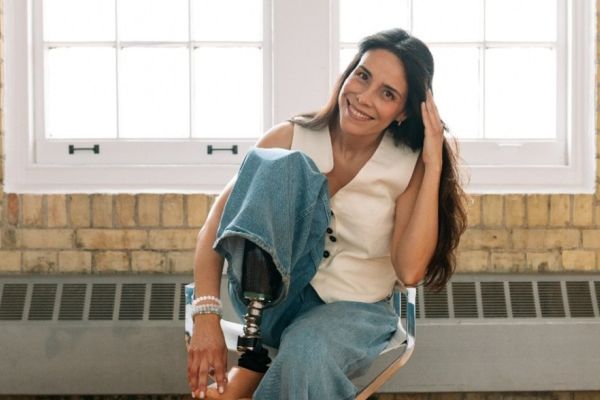

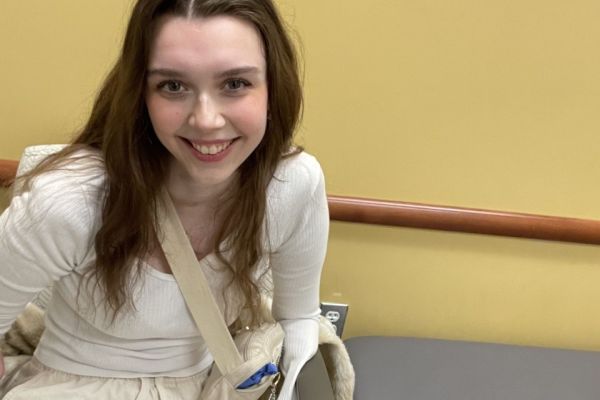

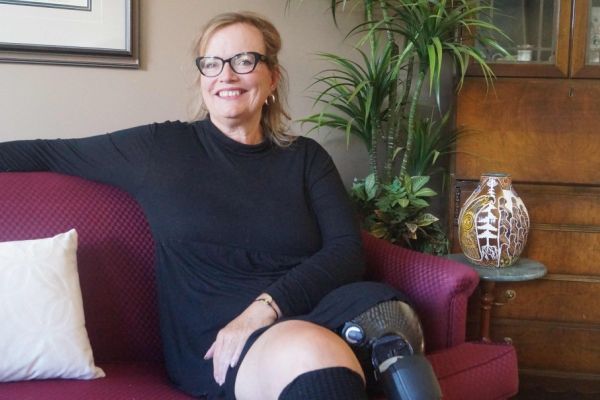
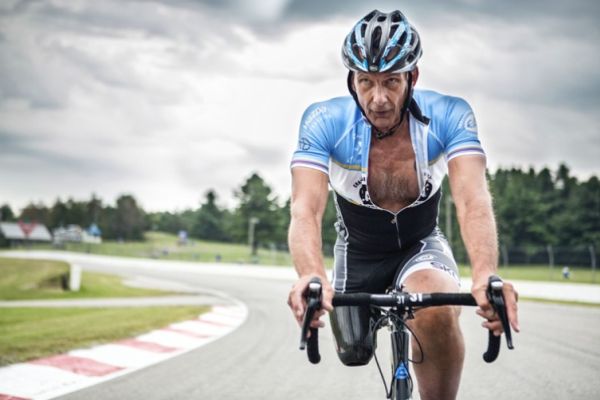

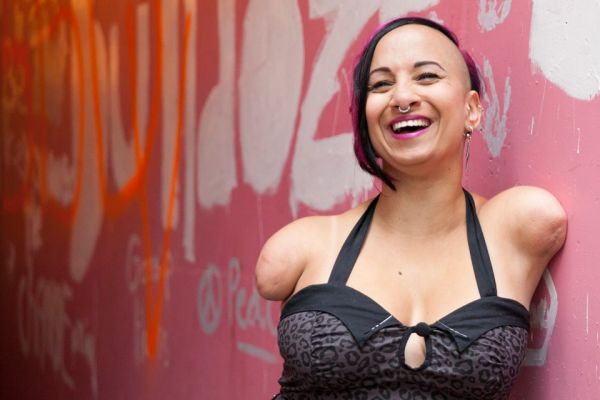
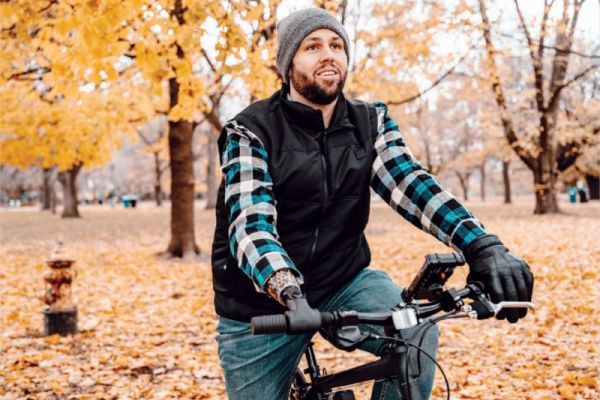
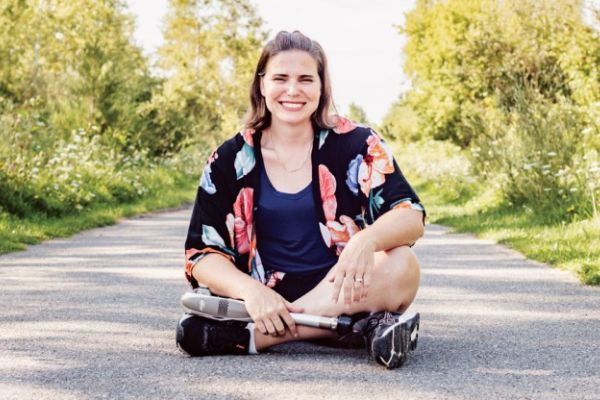
 How to resolve AdBlock issue?
How to resolve AdBlock issue?